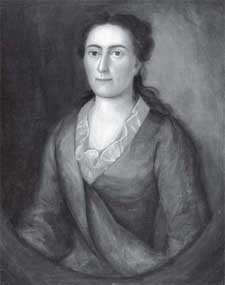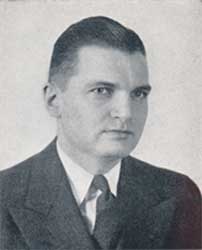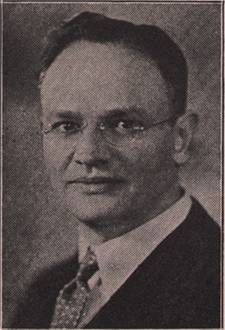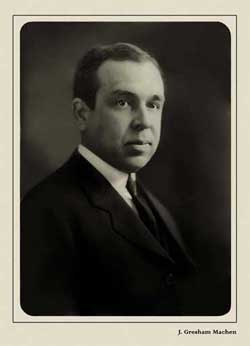What Was that Old School/New School Thing All About, Anyway?
If you’ve heard of Old School Presbyterians and their counterpart the New School, and you’ve wondered what the differences were between the two groups, there is insight to be found in the somewhat lengthy reply issued by the New School men. We are off by a day, but this can be useful, nonetheless.
Unlike immediately prior years, the General Assembly of 1837 was controlled by the Old School wing of the Presbyterian Church in the U.S.A. Taking advantage of their numbers, they took the severe action of removing from the denomination the Synods of Utica, Geneva, and Genesee, in New York, and the Western Reserve Synod in Ohio. The primary complaint of the Old School Presbyterians was the teaching of a modified Calvinism, labeled “Taylorism.” And with the excision of these four Synods, they hoped to remove the Taylor doctrine from the Church. Old School Presbyterians had also come to oppose the 1801 Plan of Union, a cooperative arrangement with Congregationalists. Here too, the removal of New School votes from the Assembly made it that much easier to repeal the Plan of Union.
Sixteen charges of theological error were leveled at the New School men by the Assembly of 1837. And no sooner were those charges laid on the table, than the New School responded in prompt reply with the document initially known as Errors and True Doctrines. Later that same summer, in subsequent conference, the New School men issued a revised version of this text under the name of the Auburn Declaration. With this document, the New School men sought to affirm their orthodoxy. Or as one historian summarized it,
“The Declaration thus adopted became, not indeed a creed, but an authoritative explanation of the interpretation given to the Westminster Symbols by the leading minds in the New School Church, as organized in 1838. It was in 1868 indorsed by the General Assembly (O. S.) as containing ‘all the fundamentals of the Calvinistic Creed,’ and this indorsement was one among the most effectual steps in bringing about the reunion of the two Churches in 1870. The document is rather a disavowal of imputed error than an exposition of revealed truth, and must be understood from the anthropological and soteriological controversies of that period of division now happily gone by.”
ERRORS AND TRUE DOCTRINE.
[submitted as a protest to the General Assembly, June 8, 1837]
First Error.—“That God would have prevented the existence of sin in our world, but was not able, without destroying the moral agency of man; or, that for aught that appears in the Bible to the contrary, sin is incidental to any wise moral system.”
True Doctrine.—God permitted the introduction of sin, not because he was unable to prevent it, consistently with the moral freedom of his creatures, but for wise and benevolent reasons which he has not revealed.
Second Error.—“That election to eternal life is founded on a foresight of faith and obedience.”
True Doctrine.—Election to eternal life is not founded on a foresight of faith and obedience, but is a sovereign act of God’s mercy, whereby, according to the counsel of his own will, He has chosen some to salvation; “yet so as thereby neither is violence offered to the will of the Creatures, nor is the liberty or contingency of second causes taken away, but rather established;” nor does this gracious purpose ever take effect independently of faith and a holy life.
Third Error.—“That we have no more to do with the first sin of Adam than with the sins of any other parent.”
True Doctrine.—By a divine constitution, Adam was so the head and representative of the race, that, as a consequence of his transgression, all mankind become morally corrupt, and liable to death, temporal and eternal.
Fourth Error.—“That infants come into the world as free from moral defilement as was Adam when he was created.”
True Doctrine.—Adam was created in the image of God, endowed with knowledge, righteousness, and true holiness. Infants come into the world, not only destitute of these, but with a nature inclined to evil and only evil.
Fifth Error.—“That infants sustain the same relation to the moral government of God, in this world, as brute animals, and that their sufferings and death are to be accounted for on the some principles as those of brutes, and not by any means to be considered as penal.”
True Doctrine.—Brute animals sustain no such relation to the moral government of God as does the human family. Infants are a part of the human family,and their sufferings and death are to be accounted for, on the ground of their being involved in the general moral ruin of the race induced by the apostacy.
Sixth Error.—“That there is no other original sin than the fact, that all the posterity of Adam, though by nature innocent, will always begin to sin when they begin to exercise moral agency; that original sin does not include a sinful bias of the human mind, and a just exposure to penal suffering; and that there is no evidence in Scripture, that infants in order to salvation, do need redemption by the blood of Christ, and regeneration by the Holy Ghost.”
True Doctrine.—Original sin is a natural bias to evil, resulting from the first apostacy, leading invariably and certainly to actual transgression. And all infants, as well as adults, in order to be saved, need redemption by the blood of Christ, and regeneration by the Holy Ghost.
Seventh Error.—“That the doctrine of imputation, whether of the guilt of Adam’s sin, or of the righteousness of Christ, has no foundation in the Word of God, and is both unjust and absurd.”
True Doctrine.—The sin of Adam is not imputed to his posterity in the sense of a literal transfer of personal qualities, acts, and demerit; but by reason of the sin of Adam, in his peculiar relation, the race are treated as if they had sinned. Nor is the righteousness of Christ imputed to his people in the sense of a literal transfer of personal qualities, acts, and merit; but by reason of his righteousness, in his peculiar relation, they are treated as if they were righteous.
Eighth Error.—“That the sufferings and death of Christ were not truly vicarious and penal, but symbolical, governmental, and instructive only.”
True Doctrine.—The sufferings and death of Christ were not symbolical, governmental, and instructive only, but were truly vicarious, i.e., a substitute for the punishment due to transgressors. And while Christ did not suffer the literal penalty of the law, involving remorse of conscience and the pains of hell, he did offer a sacrifice which infinite wisdom saw to be a full equivalent. And by virtue of this atonement, overtures of mercy are sincerely made to the race, and salvation secured to all who believe.
Ninth Error.—“That the impenitent sinner is by nature, and independently of the renewing influence or almighty energy of the Holy Spirit, in full possession of all the ability necessary to a full compliance with all the commandments of God.”
True Doctrine.—While sinners have all the faculties necessary to a perfect moral agency and a just accountability, such is their love of sin and opposition to God and his law, that, independently of the renewing influence or almighty energy of the Holy Spirit, they never will comply with the commands of God.
Tenth Error.—“That Christ does not intercede for the elect until after their regeneration.”
True Doctrine.—The intercession of Christ for the elect is previous as well as subsequent to their regeneration, as appears from the following Scripture, viz. “I pray not for the world, but for them which thou hast given me, for they are thine. Neither pray I for these alone, but for them also which shall believe on me through their word.”
Eleventh Error.—“That saving faith is not an effect of the operations of the Holy Spirit, but a mere rational belief of the truth or assent to the word of God.”
True Doctrine.—Saving faith is an intelligent and cordial assent to the testimony of God concerning his Son, implying reliance on Christ alone for pardon and eternal life; and in all cases it is an effect of the special operations of the Holy Spirit.
Twelfth Error.—“That regeneration is the act of the sinner himself, and that it consists in change of his governing purpose, which he himself must produce, and which is the result, not of any direct influence of the Holy Spirit on the heart, but chiefly of a persuasive exhibition of the truth, analogous to the influence which one man exerts over the mind of another; or that regeneration is not an instantaneous act, but a progressive work.”
True Doctrine.—Regeneration is a radical change of heart, produced by the special operations of the Holy Spirit, determining the sinner to that which is good, and is in all cases instantaneous.
Thirteenth Error.—“That God has done all that he can do for the salvation of all men, and that man himself must do the rest.”
True Doctrine.—While repentance for sin and faith in Christ are indispensable to salvation, all who are saved are indebted from first to last to the grace and Spirit of God. And the reason that God does not save all, is not that he wants the power to do it, but that in his wisdom he does not see fit to exert that power further than he actually does.
Fourteenth Error.—“That God cannot exert such influence on the minds of men, as shall make it certain that they will choose and act in a particular manner, without impairing their moral agency.”
True Doctrine.—While the liberty of the will is not impaired, nor the established connexion betwixt means and end broken by any action of God on the mind, he can influence it according to his pleasure, and does effectually determine it to good in all cases of true conversion.
Fifteenth Error.—“That the righteousness of Christ is not the sole ground of the sinner’s acceptance with God; and that in no sense does the righteousness of Christ become ours.”
True Doctrine.—All believers are justified, not on the ground of personal merit, but solely on the ground of the obedience and death, or, in other words, the righteousness of Christ. And while that righteousness does not become theirs, in the sense of a literal transfer of personal qualities and merit; yet, from respect to it, God can and does treat them as if they were righteous.
Sixteenth Error.—“That the reason why some differ from others in regard to their reception of the Gospel is, that they make themselves to differ
True Doctrine.—While all such as reject the Gospel of Christ do it, not by coercion but freely—and all who embrace it do it, not by coercion but freely—the reason why some differ from others is, that God has made them to differ.
Philadelphia, June 8th, 1837.
[signed by]:
George Duftield, E. W, Gilbert, Thomas Brown, Bliss lbirnan, N. S. S. Beman, E. Cheever, E. Seymour, George Painter, F. W. Graves, Obadiah Woodruff, N. G. Clark, Robert Stuart, Nahum Gould, Absalom Peters, Alexander Campbell.





